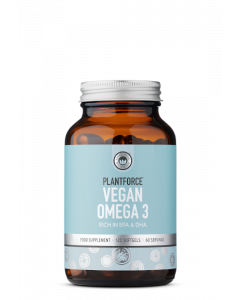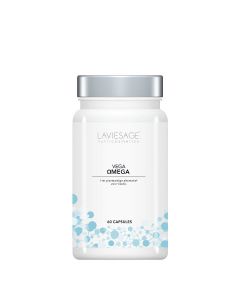-
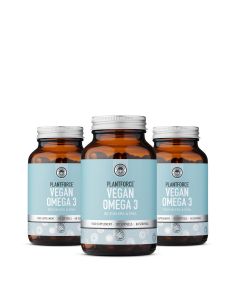 Plantforce - Vegan Omega-3 Algae Oil - 3x 120 softgels Bundle DealShipped today€ 94.37
Plantforce - Vegan Omega-3 Algae Oil - 3x 120 softgels Bundle DealShipped today€ 94.37
€ 104.85(Starting at € 94,37 p/u) -
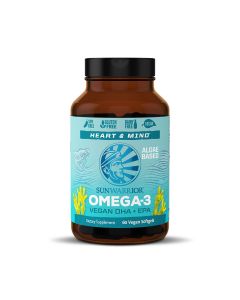 Sunwarrior - Omega-3 | Vegan DHA & EPA - 60 softgelsShipped todaySpecial Price € 38.66 € 42.95(Starting at € 38,66 p/u)
Sunwarrior - Omega-3 | Vegan DHA & EPA - 60 softgelsShipped todaySpecial Price € 38.66 € 42.95(Starting at € 38,66 p/u) -
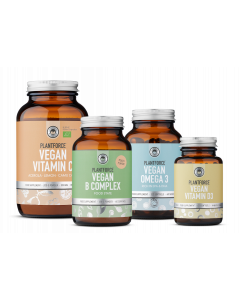 Plantforce Supps - Vit B, C, D3 en Omega 3 - VoordeelpakketShipped today€ 95.85
Plantforce Supps - Vit B, C, D3 en Omega 3 - VoordeelpakketShipped today€ 95.85
€ 127.80(Starting at € 95,85 p/u)
- Shipped today!
- Free shipping from € 45
- Postpay possibility
- Review score 9.4
- Earn reward points
- Shipped today!
- Free shipping from € 45
- Postpay possibility
- Review score 9.4
- Earn reward points
- Shipped today!
- Free shipping from € 45
- Postpay possibility
- Review score 9.4
- Earn reward points
- Shipped today!
- Free shipping from € 45
- Postpay possibility
- Review score 9.4
- Earn reward points
- Home
- Vitamins & Supplements
- Other Supplements
- Omega 3
- Omega 3 vegan

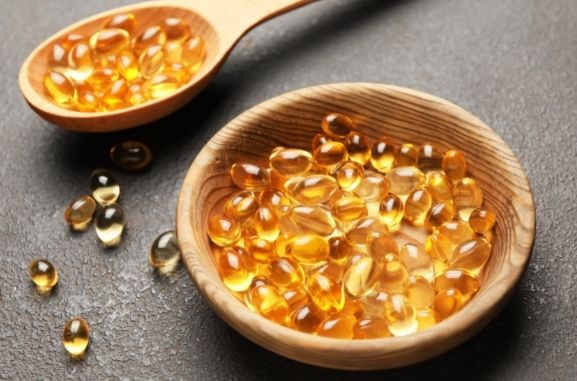
Vegan Omega 3
What is Vegan Omega 3 Oil?
Vegan omega 3 oil has been sustainably sourced from planktonic algae which is one of the only plant-based sources of EPA and DHA available! Fish oils have become one of the most popular supplements on the market today! They are used by people that do not consume enough fish or essential fatty acids in their diet. However, fish is not the only method of consuming these fatty acids, known as EPA and DHA. In fact, algae and other plant-based oils boast a similar fatty acid profile.
These are an excellent option for vegetarian and vegan eaters, providing the omega-3 fatty acids without a trace of animal product. Take a look at the range of trusted brands below!
What is Omega-3?
Many are well assustomed with the term "Omega 3" and will see it often brandshing the packaging of food products, right? But unfortunately, many still do not have a full understanding of what Omega 3 is.
Allow us to clear up some of the confusion. Omega 3 is the term given to the three main fatty acids alpha-linolenic acid (ALA), eicosapentaenoic acid (EPA), and docosahexaenoic acid (DHA). Fatty acids are the building blocks of all fats in our diet. When food is higher in one or more of these fatty acids, it is believed to provide more benefits.
Omega 3's are essential for controlling inflammatory responses, signaling pathways, functioning of the brain, components of cell membranes and to provide energy (through calories) for daily activity (Sources: Examine.com & NIH.gov).
The omega 3 fatty acid ALA is known as 'essential' in the human diet because we cannot produce it ourselves. This is then converted in the body to EPA and then DHA, which is the form that is most impactful in the body. However, at times, we produce these fatty acids quite inefficiently.
What is Vegan Omega-3 good for?
Unfortunately, there are no dietary sources of EPA or DHA for vegans. Since the body cannot synthesise (make) EPA and DHA efficiently, supplementation is the only reliable route. All our algae oil batches undergo advanced testing procedures to ensure product quality and our commitment to putting the consumer first.
Plant-based consumers aside, vegan omega-3 may also be a viable route to those that do not consume fish regularly in their diet. Of course, you could go with fish oils here, but why not change it up and try algae oil?
Which Vegan Omega-3 supplement is best?
As a rule of thumb, you should always ensure that the products you are considering come from a trusted, reputable and quality-assurred brand. If this is too much work for you, no need to worry! We have cut out that part of shopping, because only the best-quality products are sold here at PLENT. So, whatever the product, you can be sure it is of high-quality.
In terms of fish oils specifically, you will want to go for those that have sufficient levels of both EPA and DHA. According to the Institute of Medicine, the adequate intake (AI) for ALA is 1.6g for men and 1.1g for women (Source: IOM). The AI is set for ALA because it will be converted in the body to EPA and DHA. When shopping for fish oil supplements, just make sure there is a sufficient dose of ALA, EPA and DHA. You can find these on the label of most products.
Types of Omega 3
Eicosapentaenoic acid (EPA)
EPA supports the local inflammatory responses, for example, if you twisted your ankle and it became inflamed, EPA would exert its effect locally at the ankle joint. EPA also contributes to maintaining normal circulating fatty acid concentrations and regulating mood.
Docosahexaenoic acid (DHA)
DHA is incorporated into our cell membranes which provide structure and function. DHA also supports brain function and eye health. It is imperative for pregnant and breastfeeding mothers to supplement or obtain adequate DHA through fortified products (additional 200 mg/day on top of the diet) to support the eye and brain development of the fetus.
Key Health Aspects of Omega-3 Oil
Raw material for Anti-inflammatory Molecules
As mentioned, omega-3 fatty acids (EPA and DHA) provide the body with the precursors for the formation of anti-inflammatory molecules known as eicosanoids. (Source: NCBI)
Anti-inflammatory molecules are imperative in the body to defend against swelling, tissue damage and other negative responses to oxidative stress.
Cognitive Ability
There is a wealth of evidence stacke din favour of the cognitive-related benefits of omega-3 fatty acids. Some have shown that regular supplementation can protect against cognitive decline in adults: better performance on tests of nonverbal reasoning and mental flexibility, working memory, and vocabulary with higher DHA status. (Source: NCBI)
With regard to children specifically, intervention studies have shown improved maternal DHA nutrition decreases the risk of poor visual development. (Source: NCBI)
Muscle Maintenance
Omega-3 fatty acids are known to enhance protein synthesis, the process of building or synthesizing new muscle tissue. One study showed the anabolic properties of algae oil in young and middle aged adults. (Source: NCBI)
In addition, it has also been shown that supplementing with omega-3 fatty acids can reduce the onset of delayed muscle soreness. (Source: NCBI) This can help you recover faster and get right back into the gym!
Mood & Anxiety
Another well-founded role of essential omega-3 fatty acids is the impact they may have on mood enhancement (Source: NCBI) and the reduction of anxiety. (Source: NCBI) This study showed that supplementing with omega-3 had anxiolitic impacts on the body.


